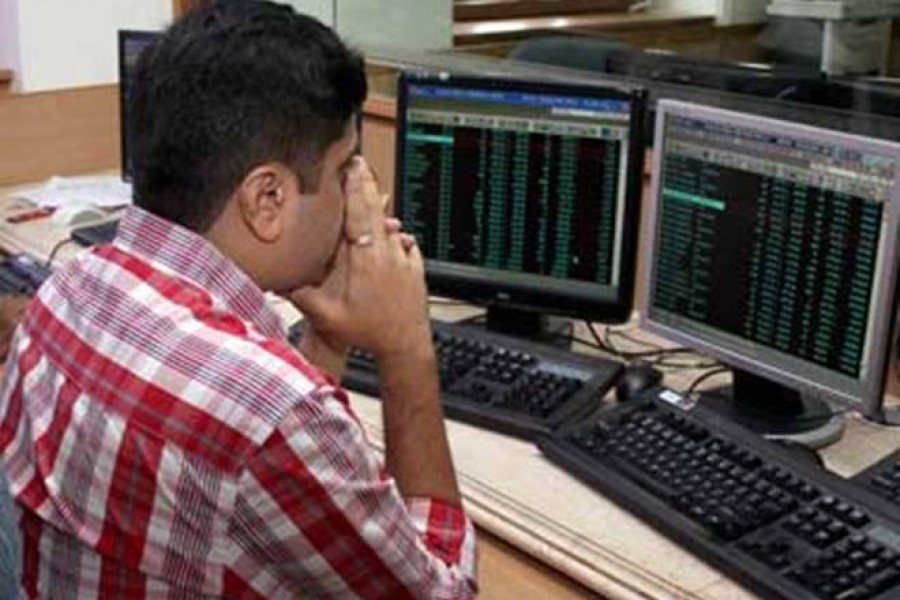
Published :
Updated :

It is not at all surprising that the stock market has been on a decline since the day the securities regulator announced the withdrawal of the floor price restriction mechanism in phases.
The Bangladesh Securities and Exchange Commission (BSEC) feared a collapse of the market in the event of a one-time lifting of the floor price that it had introduced 18 months back. Despite such a cautious move, the inevitable has happened. The DSEX, the benchmark index of the Dhaka Stock Exchange, shed 680 points or 10 per cent during the last couple of months. The index sank below 5,800 points, the lowest in three years, on last Wednesday. The downward journey of the index is likely to continue in the days ahead of the Eid festival.
Certain factors are pulling down the market, the first being the long-awaited freedom to dispose of stocks. The floor-price restrictions forced investors to hold back their stocks. Both local and foreign investors---the number of foreign investors though is not very significant--- are now on a selling spree even though most of them are counting losses. Investors are now desperate to get out of the market that, according to them, offers little prospect of a turnaround shortly. Even if there was a turnaround, they fear, it could be a manipulated one.
For foreign investors, the Bangladesh market has become non-rewarding because of the ongoing volatile exchange market and economic downturn.
Some local investors also find no valid reasons to stay in the market. Investors generally are lured by two basic factors. The first one is the capital gain and the second is an attractive return as dividend yield.
Under the prevailing circumstances, the fulfilment of the first expectation is very unlikely. Even the most optimist would not hope for a market rebound soon. A section of market manipulators who could manage occasional bouts of market surge immediately after the pandemic has made a retreat. Their magic is not working now. However, they probably will make a comeback at an opportune moment with new schemes to fleece innocent investors.
As far as getting an attractive return in the form of dividends is concerned, investors have reasons to be disappointed. Even the dividends declared by blue-chip companies are no match for the interest rates offered by banks/ financial companies on term deposits. The money market is luring more and more investors to fixed deposits that are now fetching higher interest/ yield, ranging between 10 and 12 per cent. The rates are more than double the banks/FIs used to offer until a few months back. Even government savings instruments that once sold as hotcakes are not finding too many buyers.
A stock market like the one in Bangladesh would never be vibrant and lively without notable participation by institutional investors (IIs). The ground reality is that IIs are not in a comfortable state to enter the market in a big way. With the regulatory restrictions apart, a good number of banks have serious liquidity problems. Undeniably, deposits are flowing in because of the lifting of the cap, but some banks being burdened with huge non-performing loans are in the midst of serious stress and strain. The continuous purchase of the greenback at higher rates bogged some others down.
Overall, the stock market holds out little prospect for investors both in the short and medium terms. The current economic downturn, no doubt, is a major factor. But what ails the stock market most is the crisis of confidence. Bouts of manipulations, big and small, have eroded the investors' confidence. The first and foremost task of all stakeholders should be to restore that.
Zahidmar10@gmail.com


 For all latest news, follow The Financial Express Google News channel.
For all latest news, follow The Financial Express Google News channel.